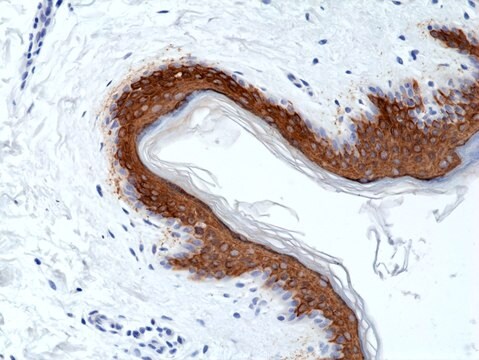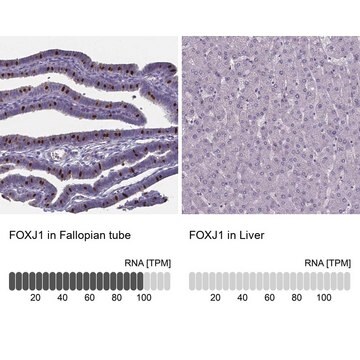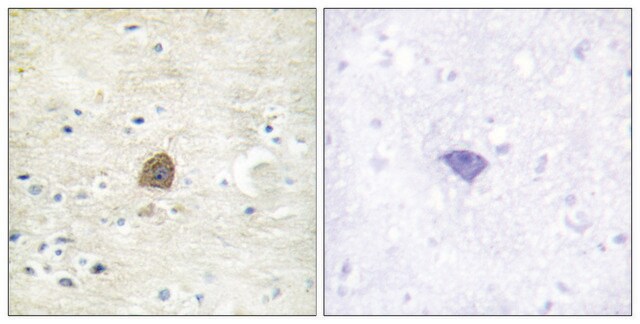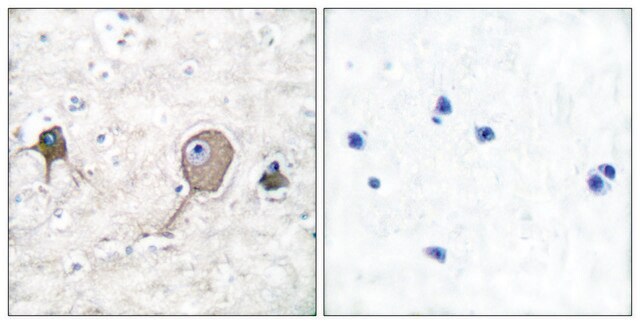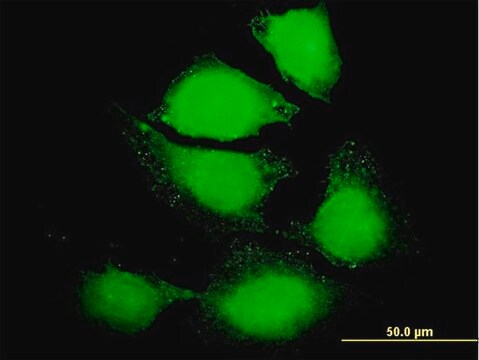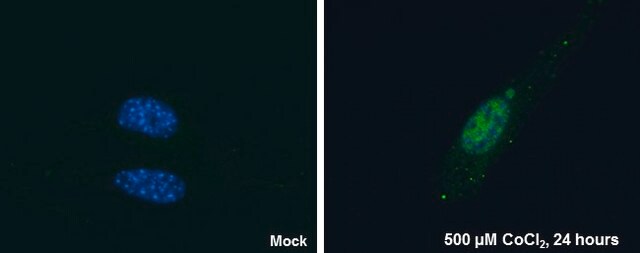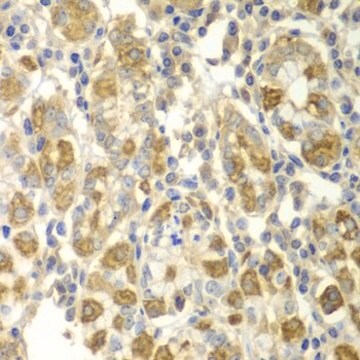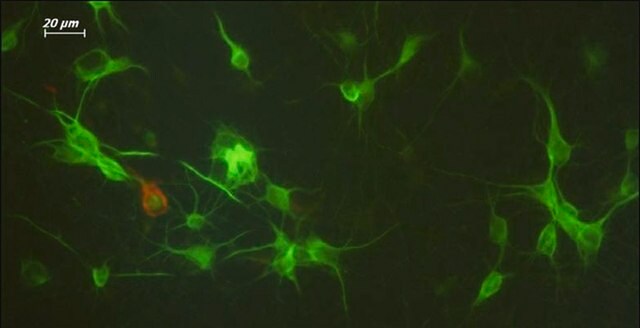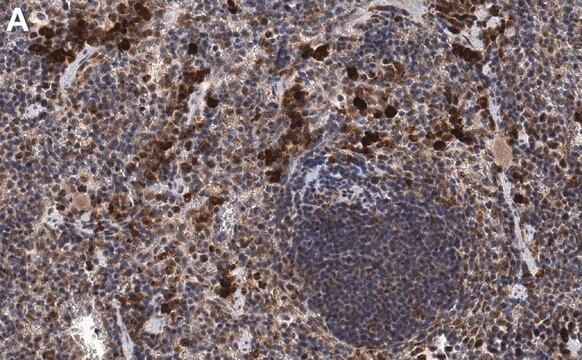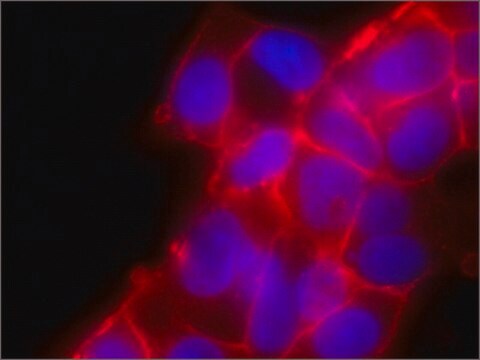WH0006623M1
Monoclonal Anti-SNCG antibody produced in mouse
clone 2C3, purified immunoglobulin, buffered aqueous solution
Synonym(s):
Anti-BCSG1, Anti-SR, Anti-synuclein, gamma (breast cancer-specific protein 1)
About This Item
Recommended Products
biological source
mouse
conjugate
unconjugated
antibody form
purified immunoglobulin
antibody product type
primary antibodies
clone
2C3, monoclonal
form
buffered aqueous solution
species reactivity
human
technique(s)
indirect ELISA: suitable
western blot: 1-5 μg/mL
isotype
IgG2aκ
GenBank accession no.
UniProt accession no.
shipped in
dry ice
storage temp.
−20°C
target post-translational modification
unmodified
Gene Information
human ... SNCG(6623)
General description
Synuclein gamma (SNCG) is a breast cancer specific gene. SNCG is highly expressed in malignant cancer cells and neuronal cells. SNCG gene is located on human chromosome 10q23.2. SNCG is a member of the brain protein synuclein family.
Immunogen
Sequence
KTKQGVTEAAEKTKEGVMYVGAKTKENVVQSVTSVAEKTKEQANAVSEAVVSSVNTVATKTVEEAENIAVTSGVVRKEDLRPSAPQQEGEASKEKEEVAEEAQSGGD
Application
Biochem/physiol Actions
Physical form
Legal Information
Not finding the right product?
Try our Product Selector Tool.
Storage Class Code
10 - Combustible liquids
Flash Point(F)
Not applicable
Flash Point(C)
Not applicable
Personal Protective Equipment
Regulatory Listings
Regulatory Listings are mainly provided for chemical products. Only limited information can be provided here for non-chemical products. No entry means none of the components are listed. It is the user’s obligation to ensure the safe and legal use of the product.
JAN Code
WH0006623M1-50UG:
Certificates of Analysis (COA)
Search for Certificates of Analysis (COA) by entering the products Lot/Batch Number. Lot and Batch Numbers can be found on a product’s label following the words ‘Lot’ or ‘Batch’.
Already Own This Product?
Find documentation for the products that you have recently purchased in the Document Library.
Our team of scientists has experience in all areas of research including Life Science, Material Science, Chemical Synthesis, Chromatography, Analytical and many others.
Contact Technical Service